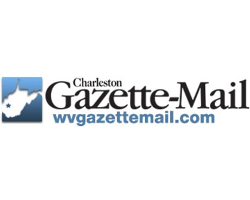Trump Nominates Former Coal Executive to Run MSHA

By Ken Ward, Jr.
September 3, 2017 - President Donald Trump on Saturday indicated he has chosen as the nation’s top mine safety official the former chief executive of Rhino Resources, a coal company that repeatedly clashed with federal regulators when the Obama administration Labor Department tried to step up industry-wide enforcement in the wake of the worst U.S. coal mining disaster in a generation.
The White House announced that Trump intended to nominate David G. Zatezalo, of Wheeling, West Virginia, as assistant secretary of labor for the federal Mine Safety and Health Administration. Zatezalo was the final name on an alphabetical list of more than three dozen appointees made public by the White House on the Saturday morning of the three-day Labor Day weekend.
In its announcement, the White House noted that Zatezalo had retired in late 2014 as chairman of Rhino Resources after serving in various top posts at Rhino, including president and chief executive officer and chief operating officer. Zatezalo had joined Rhino in March 2007, according to a corporate biography.
The White House also noted that Zatezalo had earned a degree in mining engineering from West Virginia University and completed the masters of business administration at Ohio University. He began his mining career in 1974 with Consolidation Coal as a laborer and United Mine Workers union member, and once he moved into management later became a top official at the former coal holdings of American Electric Power.
Through a spokesman, UMW President Cecil Roberts said Saturday, “It is my hope that Mr. Zatezalo will take the tough stance on enforcement that is needed to reign in the rising level of serious injuries and fatalities,” Roberts said. “We look forward to meeting with him and sharing ideas on how to best protect the nation’s miners and reduce the number of fatalities.”
Twelve coal miners have died on the job nationwide so far in 2017, with six of those deaths occurring in West Virginia. Mining deaths are on the rise nationally and in West Virginia, after dropping for several years following the deaths of 29 miners in the April 2010 explosion at Massey Energy’s Upper Big Branch Mine.
In 2010 and 2011, Zatezalo was a top executive with Rhino when the company had a series of run-ins with MSHA over safety and health conditions at mines in West Virginia and Kentucky during a period when then-MSHA chief Joe Main was ramping up agency enforcement following the Upper Branch disaster.
At the Rhino Eastern Eagle No. 1 Mine near Bolt in Raleigh County, MSHA in November issued a “pattern of violations” warning letter that cited repeated violations and cautioned the agency was preparing tougher enforcement actions. The pattern of violations program was a long-unused MSHA tool for cracking down on repeat violators of safety and health standards, and Main, a former UMW safety director, was trying to begin using it to avoid a repeat of what happened at Upper Big Branch.
After the 2010 warning letter, Rhino improved and MSHA backed off. But the company’s safety performance quickly deteriorated again, prompting a second pattern of violations letter in August 2011.
Between those two warning letters, crew leader Joseph Cassell was killed at the Eagle No. 1 Mine when rock and coal from a portion of a mine wall collapsed onto him in June 2011. MSHA investigators concluded that Rhino’s efforts to control the mine walls with timbers and conventional bolts were inadequate, something that conditions at the mine had “put the operator on notice” about. Rhino was cited and paid $44,500 in fines to MSHA, records show.
At another Rhino mine in Kentucky, earlier in 2011, MSHA had taken the unusual action of seeking a federal court injunction against the company when it discovered mine employees giving advance notice of an agency inspection to miners working underground.
MSHA sought the court order after a June 17 attempt to inspect Rhino subsidiary CAM Mining’s Mine 28 in Pike County, Kentucky, in response to a complaint about miners smoking underground. The inspection team learned that a mine foreman had been notified that MSHA inspectors were outside the mine entrance, giving the workers underground sufficient time to hide any smoking materials, MSHA said at the time.
U.S. District Judge Amul R. Thapar granted a temporary restraining order sought by MSHA and later issued an injunction — prohibiting advance notice at the mine — following a joint motion that was later filed by MSHA and Rhino.

